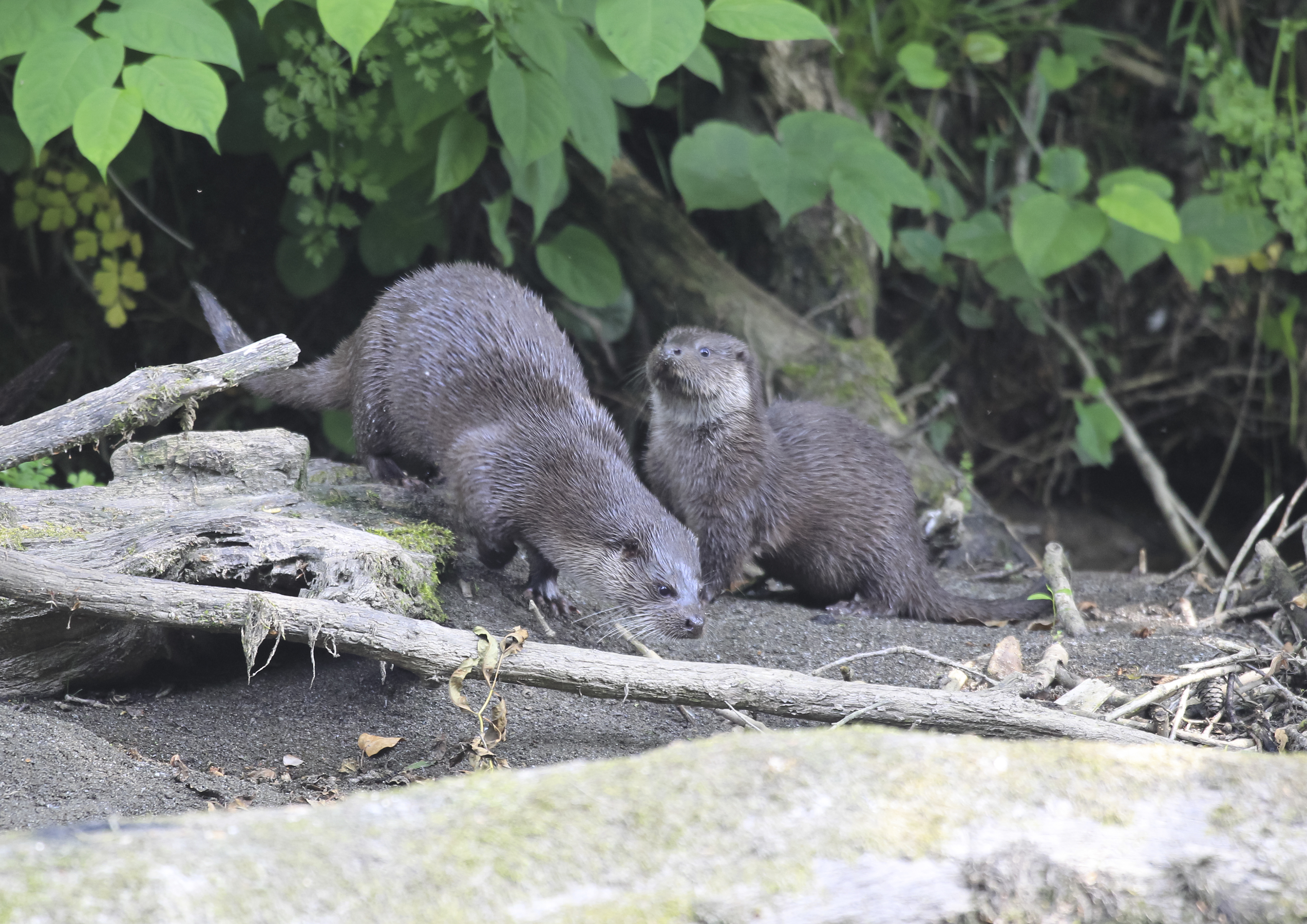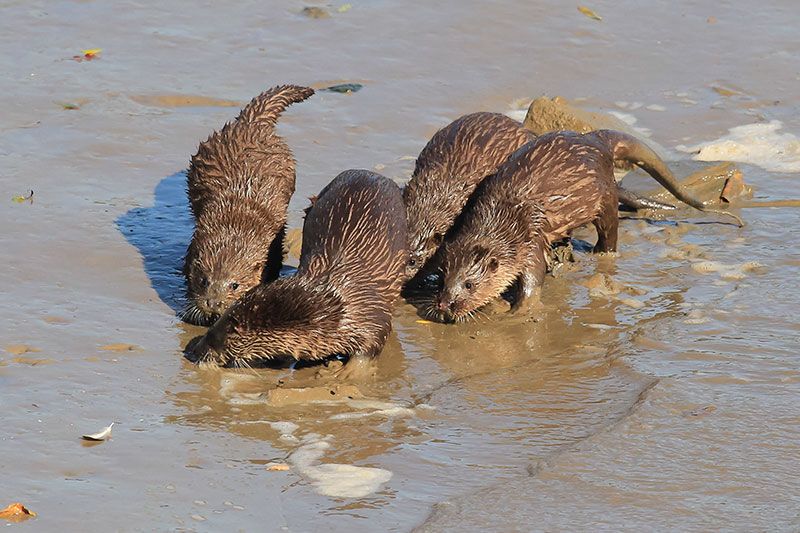Measuring otter populations

Discovering the right numbers needed for healthy otter populations
Funding for this project has now finished
Otter populations in the UK are recovering well from their dramatic decline in the 1960s. Yet there is currently no way to assess otter abundance and, therefore, their true conservation status.
The problem
National otter surveys have reported an increased presence of otter signs (spraint, holts, footprints) in the last 40 years. Unfortunately, these surveys can only ever tell us that an otter has been in the surveyed area, but gives no indication of how many otters there are, or if the same otter is present across more than one survey location.
To understand population dynamics, we need to have data on the number of otters, and information on their age classes and sex ratios. This three year project will develop the tools to fill these knowledge gaps.
The solution

Using the latest molecular technology, Cardiff University scientists will develop a new method to provide individual identification of otters from their spraint (faeces), which will provide higher success rates and more information than previously possible.
Genetic techniques can’t tell us all, so chemical analysis of the smell of spraint will be used to ‘sniff’ out the age of each otter, important for discovering and protecting breeding sites. The research team will work in conjunction with Somerset Otter Group volunteers, to collect and analyse otter spraint from two river catchments.
The new methods will be used to give much more accurate figures of how many otters are in these rivers. The project aims to provide a nationwide methodology to assess otter abundances, and calculate how many otters are needed to maintain healthy otter populations.
Thank you to all our donors who helped us fund this work. You can help us support more projects like this with a donation today:
